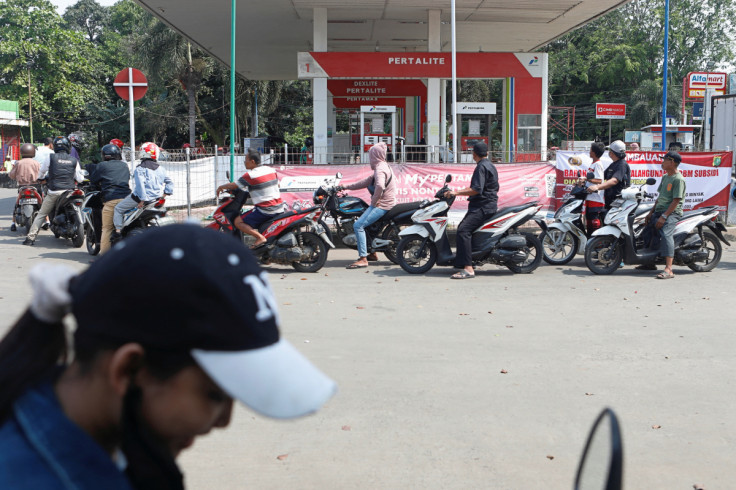Indonesia Govt Sees Inflation Staying Above Cenbank Target This Year After Fuel Hike

Indonesia's government expects inflation to stay above the central bank's target, forecasting an increase to between 6.6% and 6.8% this year after it raised fuel prices but said the measure would have minimal impact on economic growth.
President Joko Widodo increased subsidised fuel prices by about 30% on Saturday to rein in a ballooning energy subsidy budget, biting the bullet after weeks of deliberation amid risks the move would spark protests by the public.
Finance Ministry official Febrio Kacaribu said on Monday the authorities would offset the fuel price increase by ensuring adequate food supply to help control inflation.
"We would maintain inflation rate at below 7%," he told reporters.
Deputy finance minister Suahasil Nazara told reporters earlier in the day the price hike will push up inflation in September and October, but the monthly rate should normalise in November.
"Usually, inflation rises quickly in one or two months and by the third month, it begins to normalise. We'll keep an eye until the end of the year," he said.
Febrio said economic growth this year could still reach 5.2%, from 3.69% in 2021.
The August annual inflation rate was 4.69%, already above Bank Indonesia's target range of 2%-4% for a third straight month, due to high food prices.
"Given the fact that price pressures had been building for some time this year even before the fuel effect, the degree of broadening in the price effects will be the key thing to watch now," Wellian Wiranto, an economist with OCBC Bank, said, predicting inflation will top 7% in the coming months.
Rising prices could anger some Indonesians whose lives were just returning to normal after the economic hit from the COVID-19 pandemic.
Workers unions are planning to stage mass protests nationwide on Tuesday. Smaller protests flared up over the weekend in some cities in Sulawesi island, where students burnt tyres on the streets after the fuel price announcement, according to media reports.
On Monday, police presence was bolstered around the capital Jakarta as they braced for protests against the fuel prices hikes, including deploying police officers to secure hundreds of petrol stations across greater Jakarta area.
Jokowi, as the president is widely known, said on Saturday the price hike was his "last option", due to pressure building up on the fiscal front.
The energy subsidy budget had already been tripled to 502 trillion rupiah ($33.65 billion) from the original 2022 budget, but even this wouldn't be enough if prices were kept unchanged, he said.
Suahasil said even after the price hike, the subsidy budget would still swell to around 650 trillion rupiah for 2022, but some of this would be carried over to 2023.
Febrio said the outlook for 2022 fiscal deficit remain unchanged at 3.92% of GDP.
A survey conducted in mid-August, before the price hike, by pollster LSI showed on Sunday Jokowi's approval rating was at the highest in four years of 72.3%, but nearly 60% of respondents were against any fuel price hike.
($1 = 14,920.0000 rupiah)
Copyright Thomson Reuters. All rights reserved.





















